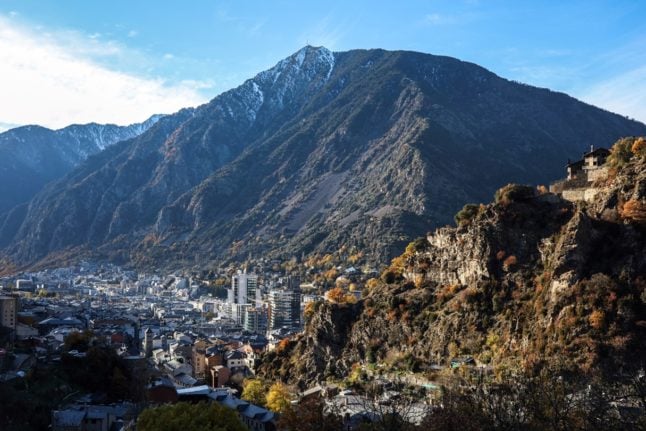During a televised interview with TF1 on Wednesday, France’s prime minister Gabriel Attal announced that the government would seek to reform the unemployment benefits system this year.
Attal said that the goal would be “to have the parameters of the reform prepared during the summer, so that it can come into force in the autumn”.
This would mark the third time that the system – which has a budget of €45 billion per year – has been reformed under President Emmanuel Macron’s tenure. Previous changes have included adding extra requirements for job-seekers to search for work and undertake training courses.
READ ALSO:: Can you really get €6k a month on benefits in France?
During the interview, Attal laid out a few options for reform, without offering specific details.
Why change the system now?
The announcement came after it was revealed on Tuesday that France’s budget deficit had reached €154 billion – or 5.5 percent of GDP – and was set to rise even further over the next two years unless action is taken.
Both president Emmanuel Macron and his finance minister Bruno Le Maire have ruled out tax rises, and say that the money can be found through cuts to state spending. Attal echoed this during his interview with TF1.
Le Maire will present a package of cuts to ministers of April 17th, entitled the programme de stabilité (PSTAB).
OPINION: France has been in denial for decades about its ‘magic money tree’ spending
But reforming the unemployment system was on the cards even before the budget deficit news, as the president attempts to push France toward ‘full employment’ – defined as 5.5 percent of working age people officially without a job – by the end of his term in 2027.
In the fourth quarter of 2023, the unemployment rate in France reached 7.5 percent of the working population, according to data published by INSEE.
How could unemployment be modified?
Attal discussed several possibilities for reforming the system on Wednesday, each focusing on the parameters that are considered when applying unemployment benefits.
READ MORE: How generous is France’s unemployment system?
The first is the duration of the compensation. Currently, you can receive unemployment benefits for up to 18 months at a time if you are aged under 53; 23 months if you are 53 or 54; and 27 months if you are 55 and over.
That being said, most people are not unemployed for that long.
This in itself is one of the previous reforms taken under Macron’s term – in February 2023, France reduced the unemployment compensation time from a maximum of 24 months for under-53s to 18 months.
Attal said that one option would be to reduce the duration of compensation “by several months (…) but I don’t think it should go below 12 months.”
The second option would be to increase the number of months required for one to access the benefit. As things stand, workers must have been employed for for at least 6 months (130 days or 910 hours) in the previous 24 months – there is no limit on the number of employers you have worked for in that time.
The period rises to six months in the previous 36 months if you were 53 years old on the end date of your last employment contract.
Attal said: “We can imagine either saying – we need to work for longer or that the six months should be assessed over a shorter period.”
As for the third option, it would involve changing “how much you earn and how much this decreases [over time] to encourage people to return to work”, Attal said, without offering further details as to how the calculation of the benefit would be altered.
The current system determines the amount of monthly unemployment benefits based on percentage of your previous salary, rather than a flat rate. The gist is: the more you earned, the more you’ll get.
It’s worked out according to a rather complicated formula that gives job-seekers around 57 percent of average salary during their last 12 months of work.
There is a ceiling to this – the maximum amount is €6,615 per month (although you would need to have been earning more than €10,000 a month previously in order to get that).
After 12 months of unemployment, the rate is reduced and a new rule means that people under the age of 57 who previously earned more than €4,500 a month have their rate reduced after eight months.
Attal said this third possibility is “less to [his] liking than the previous ones, but we will let the experts and stakeholders work this out.”
READ MORE: How France’s bid to tackle ‘wild’ budget deficit could impact you
Would this bring France in line with its neighbours?
France’s current system is more generous than many of its European neighbours, especially due to the fact that benefits are offered after just six months of work.
In Germany, workers must have been employed for at least 12 months over the last 30 months in Germany to be entitled to six months of compensation.
Meanwhile, in the UK, the minimum amount of time worked must have been at least 12 months over the last two years – longer than France’s six month minimum as well.
Several other European countries also apply a flat rate the benefits, rather than France’s percentage system.



 Please whitelist us to continue reading.
Please whitelist us to continue reading.
Member comments